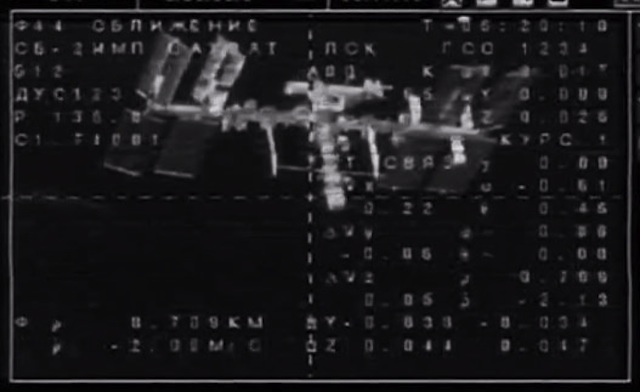SUMMARY
This is AI generated summarization, which may have errors. For context, always refer to the full article.
BAIKONUR, Kazakhstan – An American and two Russians Thursday, September 26 boarded the International Space Station after a lightning journey from Earth, on a mission that will see the Olympic torch for the 2014 Sochi Games taken into space for the first time.
Michael Hopkins of NASA and Oleg Kotov and Sergei Ryazansky of Russia blasted off without a hitch from the Baikonur space centre that Moscow leases from Central Asia’s ex-Soviet republic of Kazakhstan.
Their Soyuz-TMA-10M capsule docked successfully with the ISS just six hours later, in a new short cut route now used by the Russian space agency. The new trio shortly afterwards joined the existing three-person crew on board.
The new team was greeted on board by Russian commander Fyodor Yurchikhin and his two flight engineers – Karen Nyberg of NASA and Italian Luca Parmitano of the European Space Agency.
Kotov and Ryazansky are expected to make history during the mission by carrying into open space the Olympic torch for the 2014 Winter Games that Russia is hosting in February in the Black Sea city of Sochi.
The torch, which on October 6 is due to start a relay around Russia, is not yet with the cosmonauts and is due to be carried up to space by the next Soyuz crew, who are due to travel to the ISS on November 7.
Kotov and Ryazansky are expected to take it into open space on a spacewalk on November 9, although Russian officials have made clear that the torch will at no point be lit, for safety reasons.
It will then be returned to Earth by Yurchikhin when he returns home with his two crewmates Parmitano and Nyberg days later on November 11.
Fast track to space

The capsule orbited the Earth just four times on its way to the ISS as opposed to the usual 30, under a technique originally devised in the Soviet era but only adopted on a regular basis in the past year.
Scientists and space travelers had long weighed the benefits of such a sprint run.
The longer flight allows crew members to get better acclimated to the stresses of space while also testing their physical endurance — the ride takes a full 48 hours.
The shortcuts were abandoned after a few trial runs by the Soviet Union because one cosmonaut became so violently ill during the voyage that mission control at one point feared for his life.
But two such quick trips were successfully completed earlier this year and Russia decided to repeat the experience with a view to making them standard for future travel to the ISS.
Russian state television reported that among those present at the launch at Baikonur was French actor Gerard Depardieu, who was awarded Russian citizenship by President Vladimir Putin earlier this year.
The four-month stay of those three has been more eventful than they might have liked.
Parmitano suffered a scare during a spacewalk on July 16 when his helmet began to fill with an unidentified liquid.
“I feel that the temperature of the liquid is too cold to be sweat and above all I have the distinct sensation it is increasing in volume,” Parmitano later wrote in a gripping account of the incident in a post on the European Space Agency website.
He described being blinded and suffocating as he struggled to make his way back to the airlock.
Russia meanwhile is struggling to prove to the world’s other spacefaring nations that its mostly Soviet-designed systems are reliable enough to continue humans’ conquest of space.
The 2011 retirement of the US Space Shuttle program made Soyuz the world’s last remaining manned link with the ISS.
But Russia has been recently blighted by a growing string of space failures that include the July 2 explosion shortly after takeoff from Baikonur of an unmanned Proton-M rocket.
The accident prompted Russian Prime Minister Dmitry Medvedev to formally reprimand Russian Space Agency (Roscosmos) chief Vladimir Popovkin — a signal that his job was not safe. – Rappler.com
Add a comment
How does this make you feel?
There are no comments yet. Add your comment to start the conversation.